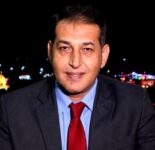Zionism Behind the Ideological and Propaganda Curtain
Al-Khamisa News Network - Gaza

Antoine Shalhat
In 1975, Israeli chemist Yisrael Shahak (1933–2001), one of the earliest to describe Zionism as a racist, messianic nationalist movement brutal toward those not belonging to the “chosen people,” published a pamphlet titled “Zionism in the Words of Its Leaders: Declaration of Intentions, Positions and Testimonies.” His effort can now be seen as foresightful about the consequences he emphasized regarding the Zionist state and its conflict with the Palestinians.
Shahak divided the pamphlet into three chapters, each containing several sections: “War and Politics,” “The Expulsion of the Palestinians 1907–1973,” and “Zionism’s Use of Religion for Ulterior Motives.” In his introductory remarks he expressed the hope that this collection of sources — essentially citations and quotations from prominent Zionist leaders and central figures in its political, journalistic and religious institutions — would help reveal the true nature of Zionism.
He also noted that the pamphlet aims to present to the reader the essence of mainstream Zionist policy as sketched by its leaders, as they themselves envisioned it behind the ideological and propagandistic veil, and stressed that he saw no need to add any commentary to the excerpts because their interpretation requires no effort. Nevertheless, he singled out as especially important one section of the “Expulsion of the Palestinians” chapter, which contains descriptions of the planning and execution of the Palestinians’ expulsion from their homeland — where, as he emphasized, any reader can judge for themselves not only the essence of the expulsion but also its planning and day-to-day execution, along with the desire to expel the remaining Palestinians after the 1948 Nakba to places like Libya and Argentina, and the deliberate falsehoods that, he says, pervade all official claims of the Israeli establishment and world Zionism regarding the expulsions.
In the pamphlet’s introduction Shahak said he avoided touching on important and dangerous practices of Zionism because he had written extensively about them and they deserved continual attention. Among these topics he highlighted: first, the daily practice of appropriating landlords’ lands and forcibly expelling Palestinian peasants — a practice that was a basic principle of the Zionist movement up to 1948, yet which resulted in transferring only about 5% of the country’s land into the hands of Zionist settlers and expelling the Palestinian peasants who lived on and farmed it.
Second, the operations of cleansing the Galilee, reducing the population of the Triangle area, displacing the villagers of the Jerusalem region, expelling the Arabs of the south and the Negev, and the cleansing of towns and erasure of villages — operations that were carefully preplanned and carried out with a calm demeanor, using psychological warfare and terror and both regular and irregular military operations, whether during the 1948 war, before it, or after it.
Third, the policy of land expropriation pursued by Israeli governments since the founding of the Zionist state. That policy, in his view, rested on a tightly woven series of laws, regulations and orders, and on the use of a carrot-and-stick approach and forcible expulsions. According to official figures, Israel by means of these measures confiscated some one million dunums of land from Palestinians who remained after the Nakba, between 1948 and 1967.
Equally significant then, and perhaps even more so now, was the conclusion Shahak drew from this examination of the essence of Zionism: that when Zionists speak of their aspirations for peace they are brazenly lying. He concluded his preface by saying: “From the moment the reader arrives at this truth, the road to his liberation and to independent thought is open, and each will thereafter reach his own conclusions.”
It is clear, of course, that Shahak sought to raise the awareness of the Israeli public about the essence of Zionism. It would not be an exaggeration to say he aimed to enlist that public not merely to change officially ideological Zionist policy, but fundamentally to free themselves from Zionism altogether.






